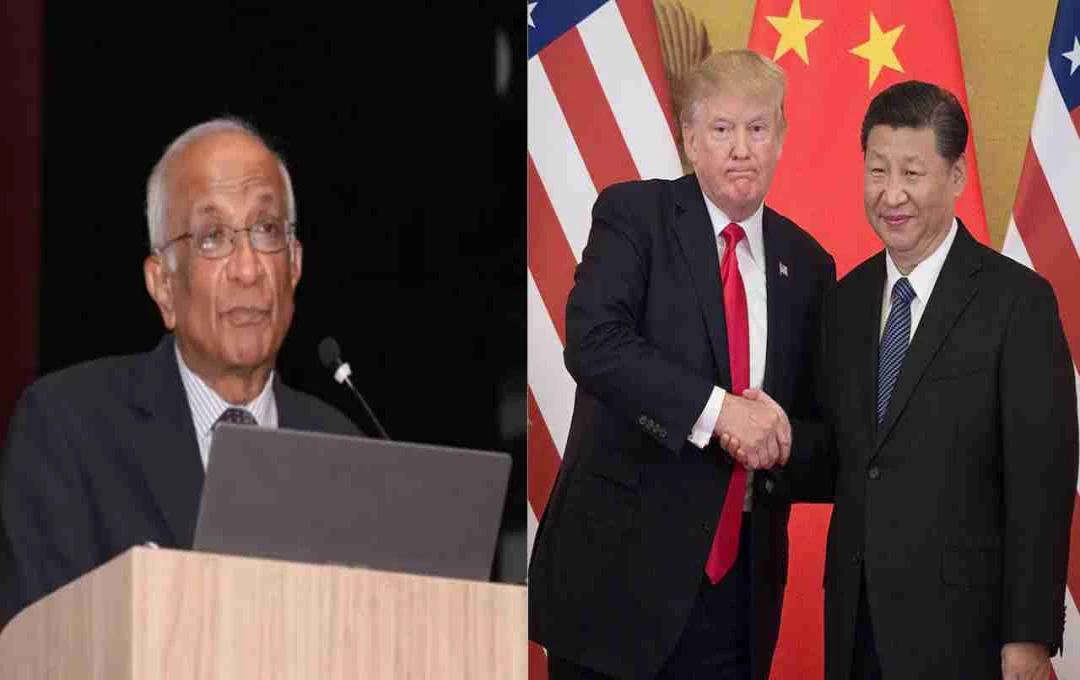Former Indian Ambassador V.S. Seshadri has bly criticized the trade policies of the United States and China. He stated that US tariffs and China's attempts at economic dominance are destabilizing global trade. He also indirectly commented on Pakistan, saying that it had taken a suicidal step through a bilateral agreement.
China US Trade Policies: Former Indian Ambassador V.S. Seshadri has expressed concern over the trade policies of the United States and China. During a lecture at the India International University of Legal Education and Research, he stated that US President Trump's tariff policy and China's attempts at economic dominance have created instability in global trade. Seshadri also indirectly targeted Pakistan, saying that a neighboring country had taken suicidal steps under the guise of a bilateral trade agreement. He also mentioned the legal dispute over tariffs in the US and its potential implications.
US Tariff Policy Affects Global Trade
Former Ambassador Seshadri, delivering a lecture at the India International University of Legal Education and Research on the topic “International Trade Law: Challenges and Perspectives,” explained that US President Donald Trump's tariff policy has destabilized trade worldwide. According to him, the Trump administration's unilateral actions are being used not only for trade balance but also for broader goals related to economic security and foreign policy.
Global Impact of China-US Policies
Seshadri stated that China is also continuously striving for global economic dominance. China's technology and investment policies have created pressure in the international market. He explained that due to the policies of the US and China, predictability and stability in global trade have weakened. This has made it difficult for small and medium-sized countries to formulate their trade strategies.
Global Influence of the US, EU, and China
The US, the European Union, and China together account for approximately 42 percent of global trade. According to Seshadri, America's unilateral tariff policy has also affected Free Trade Agreement (FTA) partners. On several occasions, the US has imposed tariffs on its allies under the pretext of “retaliatory duties.” This move could be contradictory to WTO rules.
Bilateral Agreements and Trade Pressure
The former ambassador explained that bilateral agreements imposed by the US often compel partner countries to import from the US in the energy, agriculture, and defense sectors. In return, they are granted only partial tariff reductions. Seshadri stated that this limits trade freedom and puts smaller countries under economic pressure.
Without naming Pakistan, Seshadri said, “A neighboring country has chosen a suicidal path by surrendering its resources to the US under the guise of a bilateral trade agreement.” He added that such steps could be detrimental from a long-term economic and political perspective. He also mentioned that a legal challenge against the President's tariff-imposing powers is ongoing in the US, and the US Supreme Court will rule on it.
Global Impact of US Tariffs
According to Seshadri, US tariffs and other economic measures are no longer limited to merely balancing trade. They are also being used for policy actions such as penalizing buyers of Russian oil, curbing drug trafficking, and immigration control. This is increasing instability in global trade and putting pressure on the plans of smaller countries.
Impact on India
Seshadri stated that the impact of US and Chinese policies is also visible in India. Indian companies are facing uncertainty in exports and imports. India will have to consider these changes to maintain its competitiveness in the global market.
Challenge for Global Trade
The former ambassador also noted that the lack of stability and predictability in global trade is affecting the decisions of investors and businesses. Furthermore, the policies of the US and China are having an unpredictable impact on technological and digital trade.












